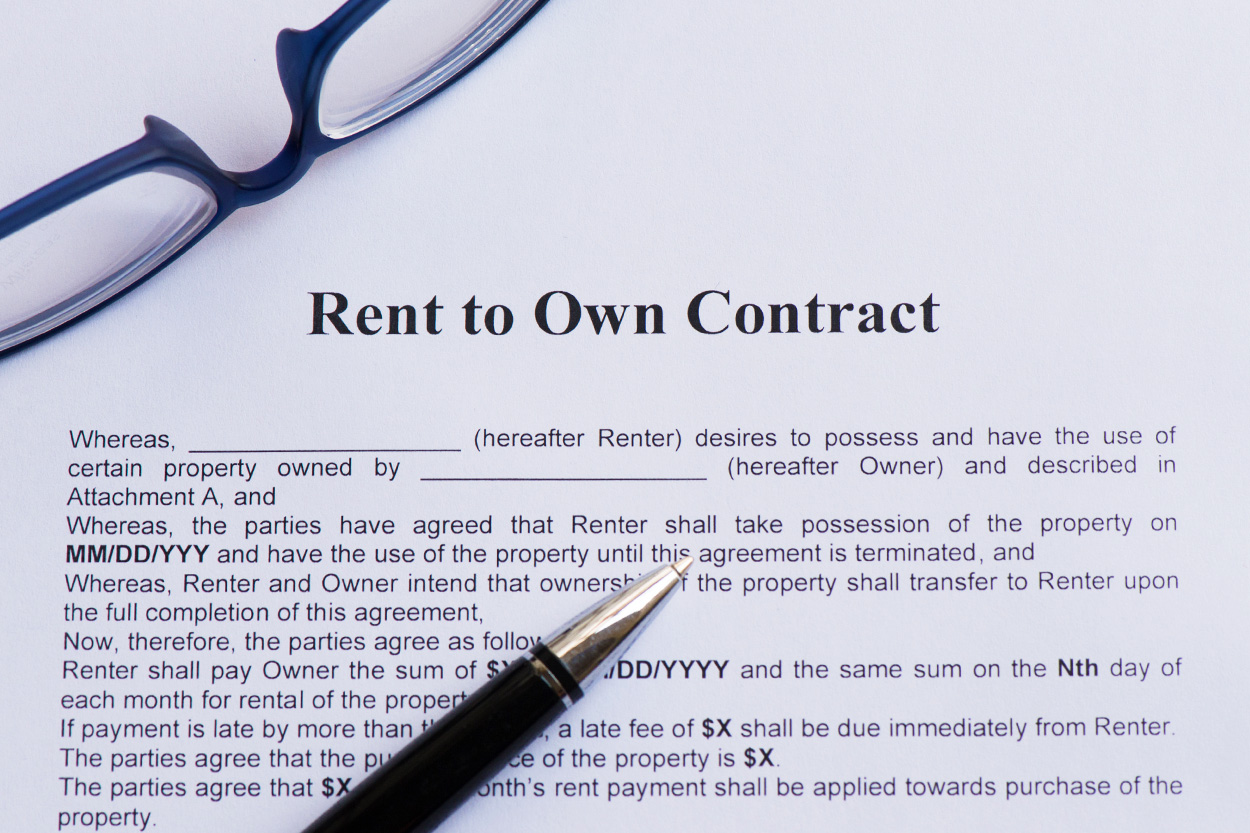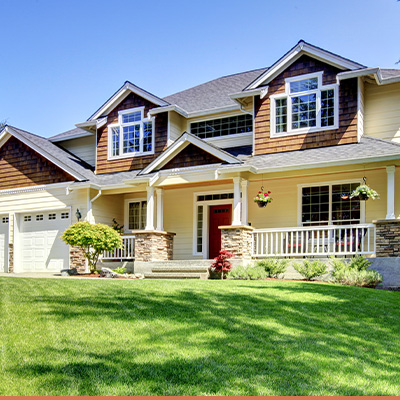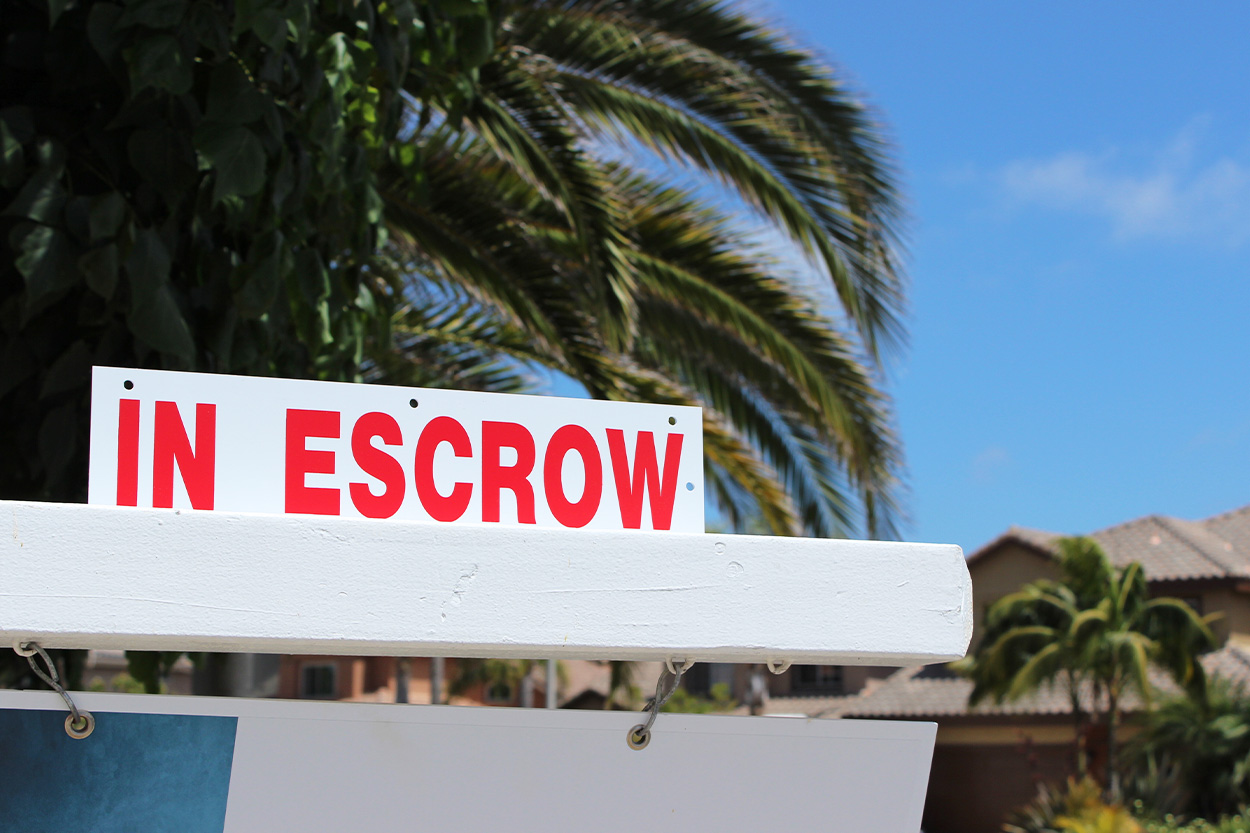Rent To Own Homes: Pros And Cons

Key takeaways:
- Rent-to-own homes gives potential homeowners the option to rent and then buy a house without the immediate need for a mortgage.
- There are plenty of advantages for rent-to-own homes, such as allowing potential homeowners to save up for a down payment, avoid buyer competition, “test driving” the property, and more.
- Be wary with rent-to-own contracts—some will require a purchase after the rental period, others require you to maintain the property and pay out of pocket for repairs.
Rent To Own Homes: Pros And Cons
If you are a potential buyer looking to become a new homeowner, the process can feel daunting. From meeting the right real estate agent to qualifying for a mortgage loan, the steps and stages of homebuying can make your dream home seem out of reach.
However, the traditional route isn’t the only way to buy a home.
Enter rent-to-own leases.
Rent-to-own leases allow potential homeowners to rent a house with the option to purchase the home before the rental period is complete.
This rent to own homes guide will educate you on how the rent-to-own process works, the benefits of rent-to-own, as well as its potential downsides.
How Does Rent to Own Work

When deciding if the rent-to-own homebuying path is right for you, it can be helpful to learn the ins and outs of the process as well as the different types of leases available. But first, let’s break down the elements that differentiate each lease type:
- Option fees – No matter the kind of contract, rent-to-own leases come with upfront fees known as the option fee, option money, or option consideration. This payment purchases the option for a renter to buy a property in the future. These fees are negotiable but usually fall within a range of 1-5% of the home’s purchase price. Option fees are nonrefundable.
- Purchase price – Rent-to-own contracts also include when and how the purchase price is determined. This agreement will either be locked in at the start of the contract, or the prospective buyer will agree to buy the house at its market value when they decide to purchase.
If the purchase price is locked in, you and the seller will agree upon a purchase price when the contract is signed. However, often the purchase price at the beginning of the lease will be higher than the current market value to account for expected inflation. - Rent payment – Depending on your lease type, a portion of monthly rent can actually go toward your down payment.
Types of Leases
There are three types of leases for a rent-to-own home: option to purchase, lease option, and lease-purchase contracts.
Option to Purchase
Think of this lease type as buying the right to purchase a home you’re renting within a specified amount of time (usually about 6-12 months). From there, the buyer and the seller can agree to a purchase price at the time of the contract, or the buyer can agree to pay the market value for the home when they decide to buy.
However, as the potential buyer, you’ll have just bought the option to purchase the home, meaning you don’t have to at the end of the specified time. This lease type is the most flexible because it allows you to “try on” the home during your lease term without a large payment upfront and decide later if you want to purchase the home. But your rent payments won’t go toward the price of the home if you do decide to buy.
Lease Option Contracts
A lease-option contract is similar to an option to purchase leases. The buyer agrees to lease the property and purchases the right to buy the property by a certain time (usually around 1-3 years into the lease). Once the lease-option period has expired, you don’t have to purchase the property or continue renting it.
It’s important to note that the option fee in this case can be quite substantial and won’t apply toward the down payment. However, in this lease type, a portion of your monthly rent payment can apply to the purchase price. Additionally, no one else can buy the home during the lease option period.
Lease-Purchase Contracts
Lease-purchase contracts legally bind you into a purchase at the end of the lease term. The buyer pays the option price, and both parties agree to a purchase price at the beginning of the lease period. Much like lease option contracts, a portion of the monthly rent can go towards the cost of the property (however, this usually means the rent will be a bit on the higher side).
At the end of the lease period, the buyer will pay for the house in full with help from bank financing. If you are unable or unwilling to buy the house at the end of a lease-purchase contract, you may be at risk of litigation.
Pros and Cons of Rent to Own Homes

Now that you understand how the rent-to-own process works, you’re better equipped to decide if a rent-to-own home is the right choice for you. Here are the benefits, and detriments, of a rent-to-own home:
Pros
There are many benefits of rent to own homes, including:
- No need for a mortgage – As renters, you’ll only need to pay for rent, at least during the leasing stage. That means there is no need for an immediate mortgage. This can also give you time to build up good credit prior to your home loan application.
- “Test drive” the house – Rent-to-own leases allow a tenant to try out a property for a few years. If unexpected issues or changes arise, you’ll have the flexibility to move out and find a better fit.
- Build up a down payment – Depending on your lease type, you can put your rent money to good use to invest in your home. With every monthly payment, a portion of your rent money is automatically set aside and put towards the purchase price of your home.
- Avoid buyer competition – After your lease period, you don’t have to worry about others trying to swoop in on your potential property.
Cons
Every home buying journey has a few bumps in the road. It’s important to consider these cons when thinking about renting to own your home:
- Complicated contracts and legal wording – Simply put, these leases are complicated. Whether it’s the type of contract, the type of payment, or even maintenance specification, it’s always best to have a professional review the contract before signing anything.
- Locked-in purchase price – While this can be a pro if the housing prices increase, a locked-in purchase price is definitely a con if the market takes a nosedive and prices are lower after your lease period than when you signed on.
- Out of pocket maintenance – Another part of the contract negotiation is whether or not it’s the renter’s responsibility to maintain the house. Mowing the lawn is one thing, but you may be paying out of pocket for more expensive home repairs.
Is Rent to Own Right for You?
Buying real estate is a big and expensive step in anyone’s life. Rent-to-own homes are a smart way to make the task easier by giving more time to the renters to build up good credit and secure their finances, while trying out potential properties.
In the end, knowledge is key, and understanding what your needs are and the current market trends will help you figure out if this option is best for you.
Sources:
Investopedia. Rent-to-Own Homes: How the Process Works. https://www.investopedia.com/updates/rent-to-own-homes/
The Balance. Advantages and Disadvantages of “Rent to Own.” https://www.thebalance.com/what-is-rent-to-own-315664
Ramsey. How Does Rent-to-Own Work? https://www.daveramsey.com/blog/how-does-rent-to-own-work






